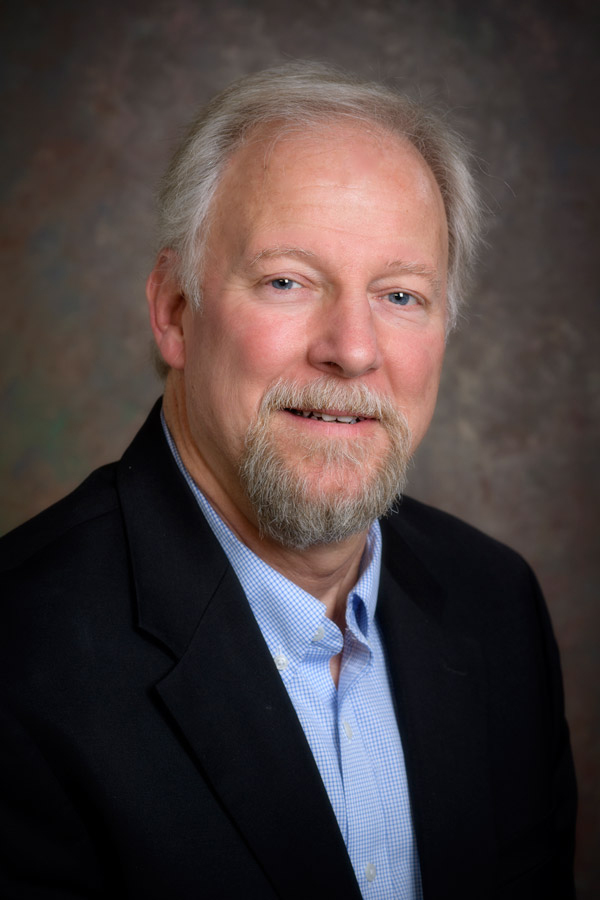


Fathering full-time
Photos by Kathy F. Atkinson and iStock June 12, 2019
UD Prof. Rob Palkovitz says fathers should be involved in their children’s lives in many ways
As the norms of American families have changed, so too has fatherhood. It’s become a more engaging and dynamic responsibility. No longer the sole breadwinner in many families, many dads nowadays are fulfilling household roles that their own fathers did not.
This expectation for fathers to be more involved in their children’s lives brings a smile to Rob Palkovitz’s face. As professor of human development and family sciences at the University of Delaware, Palkovitz studies how father involvement affects men and their children. Through his research, he has advocated for new parenting norms for decades, stressing the importance of an affectionate, fun-loving father who is invested in the social and emotional development of his children.

“Men should be involved in fathering in addition to their traditional role as provider,” Palkovitz said. “Men and women are converging in both family and work. Contemporary families are more egalitarian and share work-life balance.”
For 36 years, Palkovitz filled lecture halls at UD, engaging students with revolutionary ideas that proved to be ahead of their time. He taught his final seminar during the 2019 spring semester and will spend next year on sabbatical before retirement.
With Father’s Day on Sunday, June 16, UDaily interviewed Palkovitz on his research, including his latest initiative, The Global Fatherhood Charter, which is a set of guidelines for supporting fatherhood in child development, drafted in consultation with 21 leading child development scholars. You can read the entire The Global Fatherhood Charter at the Child and Family Blog, where Palkovitz is a contributing author.
Q: What kind of difference can a good father make?
Palkovitz: Basically, good fathering has a great effect on children's well-being, educational attainment, social lives and health. There all sorts of documentation of positive fathering having good outcomes for kids.
Q: Clearly it’s important for children. But what about fathers?
Palkovitz: The thing I'm most known for is a fairly large research project asking men how fathering changed their lives. What's the effect of fathering on men's adult development? Participants responded that they're better men for having been involved with their kids, that all the costs are far outweighed by the benefits that they've reaped. Good fathering is good for men, it's good for kids, it's good for their family, it's good for the community. It sort of optimizes development for both men and their children.
Q: What was the motivation behind the development of The Global Fatherhood Charter?
Palkovitz: The idea is to bring together the best scientific thinking about fathering, and to just make it accessible to policymakers, practitioners and everyday dads.
Q: How has the field changed since you started at UD?
Palkovitz: There's been an explosion of fathering research since the late 1970s. It went from a handful of scholars and articles in scientific journals annually to literally thousands of articles coming out each year now. So the scientific interest has increased exponentially, which is good.
Q: What are you working on right now?
Palkovitz: I'm currently writing an article that is under review, and I'm making the argument that, although the field has largely focused on father involvement — so how many books a father reads to a child each week, or how much time was spent with the child — really, the more important thing to focus on is relationship quality. Traditionally, father-involvement research has looked primarily at fathers’ behaviors towards children, but the reality is that the quality of the father-child relationship involves not just behavior but also feelings and thoughts.
Q: What do you mean by behaviors, feelings and thoughts?
Palkovitz: If I ask you how's your relationship with your dad, or what made it good or what made it bad, you’ll probably have all kinds of thoughts and feelings about that. So both fathers and their children have thoughts, feelings and behaviors that are associated with the quality of their relationship. I'm currently focused on helping fathering scholars to understand the importance of searching beyond fathers’ behavior toward children and looking at more reciprocal intersections of fathers’ and children's behaviors, thoughts and feelings across time.
Q: When students signed up for a course on human development, what did you want them to take away?
Palkovitz: I’ve instructed over 13,000 students at UD. I like learning to be practical. The whole idea behind my human development course is that the students are developing as people as well as professionals as they take the course, and as they come to understand the principles of development, and how to facilitate others’ development, they'll learn how to facilitate their own well-being and development so they can have the best life they can have, not only as a professional but with their family and friends. So the idea is to make it practical and applicable to everyday life.
Q: What’s it been like teaching the next generation of scholars about the exciting research that’s happening in your field?
Palkovitz: It was never lost on me that those who take my courses are people who are focused on and motivated to help other people — they’re very selfless, other-oriented people — they're either going to be teachers or human service workers or in the health care professions. Instead of pursuing the highest salaries, they're more focused on helping others. Making a living while making a difference. I found it to be an incredible privilege to work with them and trying to help them understand human development, so that they can help their clients, or patients or students, and at the same time coach themselves to go out and make a difference in a positive way.
Contact Us
Have a UDaily story idea?
Contact us at ocm@udel.edu
Members of the press
Contact us at 302-831-NEWS or visit the Media Relations website

